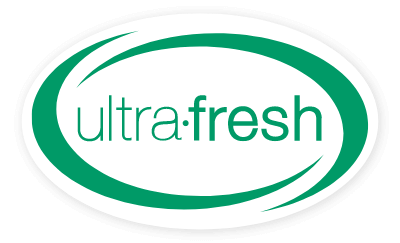We’ve all been there. You wake up chipper and ready to tackle the world. You get out of your bed and head into the shower, ready to start doing your best Freddie Mercury impression.
But as you finish your session of karaoke and start drying off, you smell… something.
It can’t be you! You just washed yourself head to toe. Give a deeper whiff – it's that musty towel smell!
[caption id="attachment_4963" align="aligncenter" width="600"]

A towel can smell musty due to a build-up of mildew.
How did it become so smelly? Aren’t you only wiping clean water? How do you stop your towel from smelling so bad?
Well, while it’s not the most extravagant of mysteries, the answer is simple – your towel is filled with mildew.
Why Does My Towel Smell Like Mildew?
Mildew, like all fungi, needs moisture to survive. Thriving on all organic materials, such as clothing, paper, carpet, and upholstery, you can find it practically everywhere.
You might be asking, “Well, how did it get in my bathroom?”
Unfortunately, mould and mildew reproduce by releasing an asexual reproductive unit known as spores. Spores are microscopic and disperse through the air, undetected by the human naked eye.
When a spore eventually lands in suitable conditions with enough moisture and the proper temperature, mould and/or mildew will start to grow.
As they grow, there by-products produce that all-to-familiar musty smell.
How to Get Rid of Musty Towel Smell
The unfortunate issue with towels is the one thing they were designed for – absorbency. So, when we run towels through an average wash cycle, there is a greater chance for detergent or fabric softener residue to build up.
Letting it go on long enough, and you have yourself a musty towel that isn’t doing its job.
Luckily, it’s easy to have your towel back to smelling fresh with the help of some household materials!
This task can be completed with bleaches and hydrogen peroxides, but in favour of keeping your colours looking vibrant, we will be using a less harmful, but just as effective cleaning method.
First Wash
In your washer, start a wash cycle on your hottest setting. We won't be using a detergent, but instead 1 cup of white vinegar!
Throw in your towels and let the cycle finish.
The vinegar will create an acidic environment that mildew can not survive within. Not to mention that a vinegar-based wash cycle will help to clean your washing machine. Two benefits in one!
Second Wash
Leave your towels in the washing machine and prepare for a second go. Instead of white vinegar, we will be adding a ½ cup of baking soda over our towels.
Start the wash on the hottest setting once more, leaving it for its entirety. The baking soda will oxidize any leftover residues and lift dead mildew cells out of the fabric.
Baking soda also has a couple of extra benefits. Firstly, baking soda is a base and will act to neutralize the pH level of your towels after the vinegar cycle. Secondly, it will help reduce the deposits of detergent residue or minerals, keeping your towels soft and absorbent for longer.
Baking soda also whitens and brightens old linens. So, if your musty towels happen to be white, they will more than likely appear brighter after a baking soda wash.
Drying
As soon as your washer is done, switch your towels to the dryer. You will want to avoid leaving them sitting damp, as that is how you got mildew in the first place.

If your drier offers an antimicrobial drying cycle, select that function. If not, then just make sure to dry them thoroughly, and your towels should be back to smelling fresh!
If you noticed that your towels are becoming stiff, you can throw some tennis balls into the drying cycle to help fluff them up.
Keeping "Musty Towel Smell" at Bay
While there is always a chance that mildew can grow on your towels due to their use, there are a couple of things that can lengthen their usefulness.
First, is to always hang them up after use. Allowing them to dry evenly will lower the duration that they are moist, effectively lowering the chance of mildew contamination.
Secondly, owners should wash their towels separately. Since towels are only used (or at least your body towels should be!) for drying clean water, they don’t require the same amount of soap. As well, the less detergent used means less residue build-up.
[caption id="attachment_4954" align="aligncenter" width="600"]

Help prevent musty odours in your towels by hanging them outside to dry.
As well, several laundry masters (read as Mom) swear by hang-drying your towels outside. The outdoor atmosphere infuses nature's freshness into your towels without the use of chemical products or manufactured scents.
It’s also worth mentioning that UV rays can kill exposed mildew cells. Just make sure to review your neighbourhood by-laws regarding clotheslines as some areas don’t allow it.
Antimicrobial Towels and Textiles
If you’re like us and want to keep your house clean and fresh as it can be, there is another alternative for the longevity of your towels.
Adding antimicrobial additives, incorporated into the towel fibers during the manufacturing process, provides stain/odour protection, mould and mildew resistance, and increased durability for your fabrics.
Not just for towels, antimicrobial technologies are also perfect for intimate or athletic wear, socks, gloves and more!
If you would like to learn about Ultra-Fresh’s approach to a better definition of clean, feel free to read about our fabric treatments and how they can help your products last longer.
